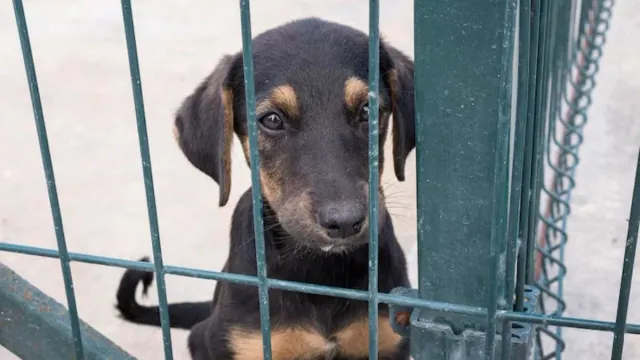- By Nidhi Giri
- Thu, 14 Aug 2025 04:39 PM (IST)
- Source:JND
The Supreme Court on Thursday reserved its ruling on the verdict of a different bench ordering the relocation of stray dogs in Delhi-NCR within eight weeks in view of public safety. A bench of Justices J B Pardiwala and R Mahadevan had directed authorities in Delhi-NCR on August 11 to start relocating all stray dogs from streets to shelters. The bench had asked the authorities to initially start by creating a shelter to house 5,000 dogs.
A three-judge bench comprising Justices Vikram Nath, Sandeep Mehta and N V Anjari heard senior advocate Kapil Sibal, among others, and Solicitor General Tushar Mehta before reserving its verdict on the interim prayer for a stay on the August 11 decision.
Maneka Gandhi’s Sister Draws Criticism For Calling Rabies A ‘Delicate Virus’
Maneka Gandhi’s sister and animal activist, Ambika Shukla, who is also against the apex court’s relocation order, drew criticism after she declared rabies to be “delicate virus” that gets killed if the affected area is “washed with soap.”
"Rabies virus spreads only when the infection reaches the blood through saliva or blood… this is the medium of transmission. But the virus is so delicate that if you wash the wound even with soap, the rabies virus dies," she said in a video posted by X handle ‘The Red Mike’.
'रेबीज़ एक हल्का वायरस है, साबुन से धोने पर वायरस मर जाता है' - Ambika Shukla, Animal Activist @aryanmiik #straydogs #SupremeCourt #DelhiNCR pic.twitter.com/K86kY6NkVt
— The Red Mike (@TheRedMike) August 13, 2025
“That’s why, you’ll see, in our country where there are billions of people, the number of cases is what? Just 54. So why so few? Because first, rabies is a very rare disease; second, it doesn’t spread easily; and honestly, dogs don’t bite as much as it’s made out to be,” said Ambika Shukla.
Netizens slammed the activist on the internet for the uninformed remark.
“I’m not a doctor, but I can clarify based on medical knowledge. Rabies is not a mild virus; it’s a deadly viral disease that affects the nervous system and is nearly 100 per cent fatal once symptoms appear. Washing with soap and water is recommended immediately after a bite from a potentially rabid animal to reduce the risk of infection, as it can help remove the virus from the wound. However, this does not guarantee the virus is completely eliminated, and medical treatment (like post-exposure prophylaxis with vaccines and immunoglobulin) is critical. A doctor should be consulted for confirmation and proper guidance,” a user wrote on X.
ALSO READ: 37 Lakh Dog Bites vs No Shelter Homes: SC Reserves Order In Stray Dogs Case; Check Key Arguments
WHO On Rabies
-Rabies is a vaccine-preventable, zoonotic, viral disease affecting the central nervous system.
-In up to 99 per cent of the human rabies cases, dogs are responsible for virus transmission.
-Children between the age of 5 and 14 years are frequent victims.
-Rabies spreads to people and animals via saliva, usually through bites, scratches, or direct contact with mucosa.
-Once clinical symptoms appear, rabies is virtually 100 per cent fatal.
-Rabies is a serious public health problem in over 150 countries and territories, mainly in Asia and Africa.
-Rabies deaths are preventable with prompt post exposure prophylaxis (PEP) by stopping the virus from reaching the central nervous system. PEP consists of thorough wound washing, administration of a course of human rabies vaccine and, when indicated, rabies immunoglobulins (RIG).
-Over 29 million people worldwide receive human rabies vaccine annually.

